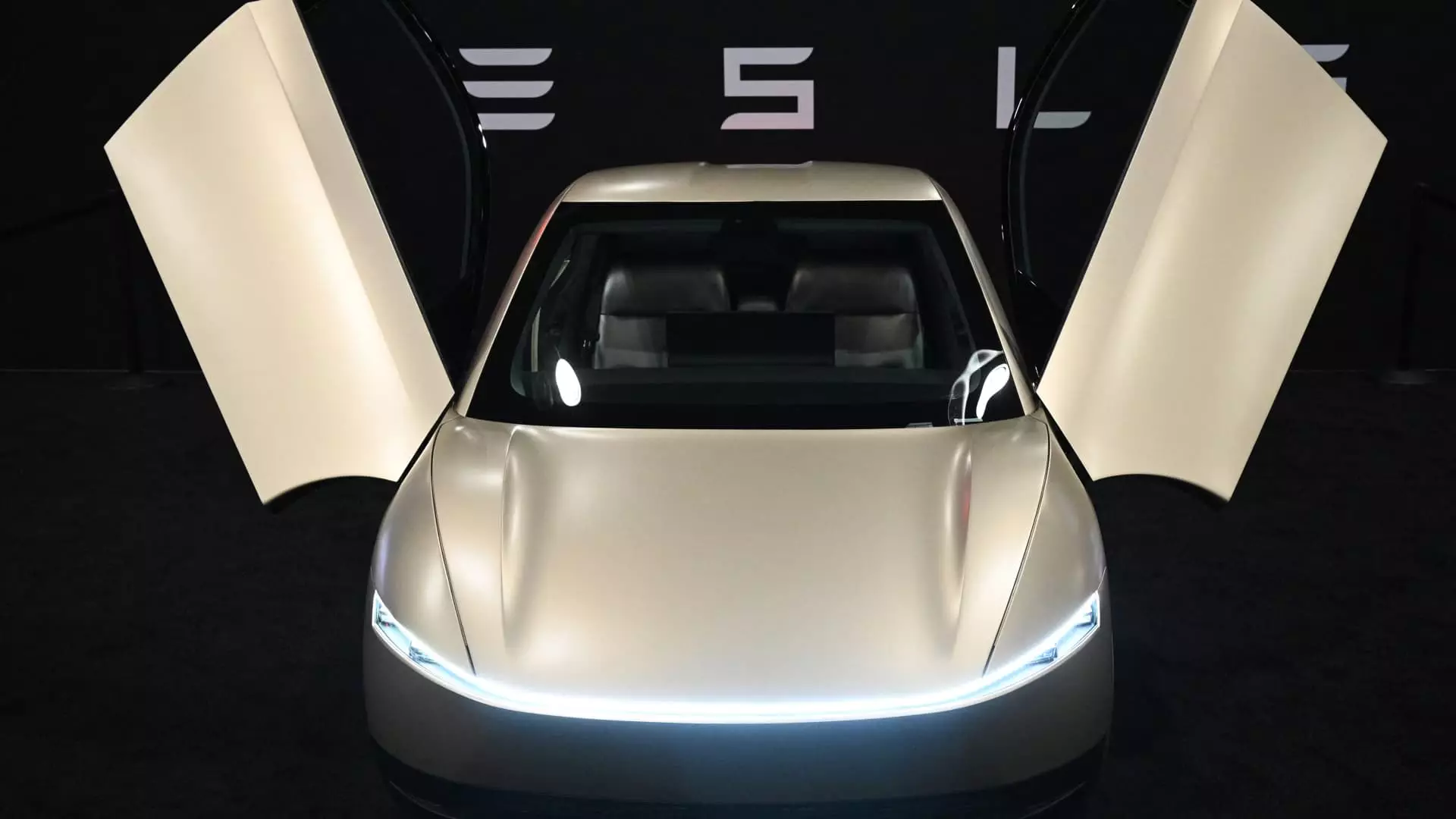The anticipation surrounding Tesla’s Full Self-Driving (FSD) technology has approached fever pitch over the years, yet the long-promised robotic taxi revolution remains unfulfilled. While Elon Musk has perpetuated the myth that we are mere moments away from a world where cars drive themselves flawlessly, the reality is less glamorous. The underlying concerns surrounding the FSD system not only question its safety but also highlight a broader issue of miscommunication and possible irresponsibility from a company that positions itself as a leader in industry innovation.
The Illusion of Full Autonomy
Tesla markets its FSD system as a groundbreaking advancement, claiming it offers unparalleled driving support through integrated cameras and sophisticated software. However, this claim glosses over a critical reality: Tesla’s FSD is not fully autonomous. It’s merely an advanced driver-assistance system requiring constant supervision from the driver. The user’s manual bluntly states that “FSD is a hands-on feature,” necessitating that drivers maintain their attention on the road. Alarmingly, many Tesla owners choose to ignore these warnings, driving hands-free and creating a dangerous gambling game with public safety.
What Musk has succeeded in doing is cultivating a fervent fan base that often turns a blind eye to the potential hazards of dependence on partial automation. The problem deepens when you consider the alarming number of accidents linked to Tesla’s systems. As highly sophisticated as they promise to be, when these systems malfunction, the consequences can be catastrophic. Critics might rightfully argue that branding these systems as “self-driving” perpetuates unrealistic expectations and ultimately dishonors the severity of the risks involved.
Public Safety in Jeopardy
With several high-profile accidents reported, many of which have resulted in injuries or fatalities, public concern over Tesla’s FSD technology is both justified and warranted. A recent analysis revealed that in instances where the FSD system was engaged, failures were alarming enough to raise flags about the software’s reliability. The inconsistency of the FSD software often results in unpredictable behavior, creating perilous driving situations that could easily end in tragedy. As automotive consultant Guy Mangiamele succinctly put it, the system can perform “amazingly well,” but conversely, it can “kill somebody or you could hurt yourself.”
Add to this the rising skepticism among experts who emphasize that Tesla hasn’t produced any credible evidence proving FSD is nearing readiness for unsupervised driving. The divergence between Tesla’s marketing strategy and the reality of the technology only amplifies fears and highlights an ethical dilemma regarding the company’s transparency.
A Crisis of Confidence Among Consumers
As public backlash against Tesla grows, the pressure on Musk to deliver a truly revolutionary product has intensified. The unfortunate reality is that public protests, boycotts, and vandalism have emerged in response to the company’s lackluster performance and perceived disconnection with consumer safety. Tesla is facing a crisis, not only with its products but also with its brand reputation. Recent data showcases a downward trend; existing customers are trading in their Teslas at unprecedented rates as new potential buyers reconsider their choices.
For Tesla, the stakes are high. A 36% drop in stock value over a few months signifies impending investor discontent, marking an evident trend of waning faith in the company’s future. A lack of retail confidence in the product is disheartening and could have lasting repercussions for Tesla’s market share.
The Political Quagmire
Musk’s involvement in political affairs adds another layer of complexity. His financial backing of controversial political campaigns and endorsement of far-right parties like Germany’s AfD have contributed to public disdain. This association affects the brand’s image and raises questions about Tesla’s leadership priorities. The public no longer views Tesla merely as a tech company but as a political entity whose affiliations could jeopardize consumer safety and brand integrity.
The intertwining of technology and political sentiment complicates the perception of the FSD system. Musk’s commitment to slashing federal oversight loses its allure amid mounting safety concerns surrounding technology that is purported to prioritize efficiency and liability.
The Marketing Gamble
As Tesla gears up for product unveilings and the much-hyped “robotaxi launch” in Austin, skepticism remains high. While investors and the corporate world live on promises from Musk, the real-world ramifications of launching a flawed or dangerous driving system could have devastating outcomes. The company risks further damaging its reputation and eroding trust among loyal customers.
It seems that the more the world waits for Tesla’s FSD miracle, the more it becomes evident: what gives this scenario an air of negativity is not simply the failure to deliver, but the consequences of what happens when technology is marketed as a panacea for transportation when it isn’t prepared for the road. The message must be sent loud and clear: when it comes to autonomous technology, a reckless approach is not merely an oversight; it’s a potential death sentence on wheels.

